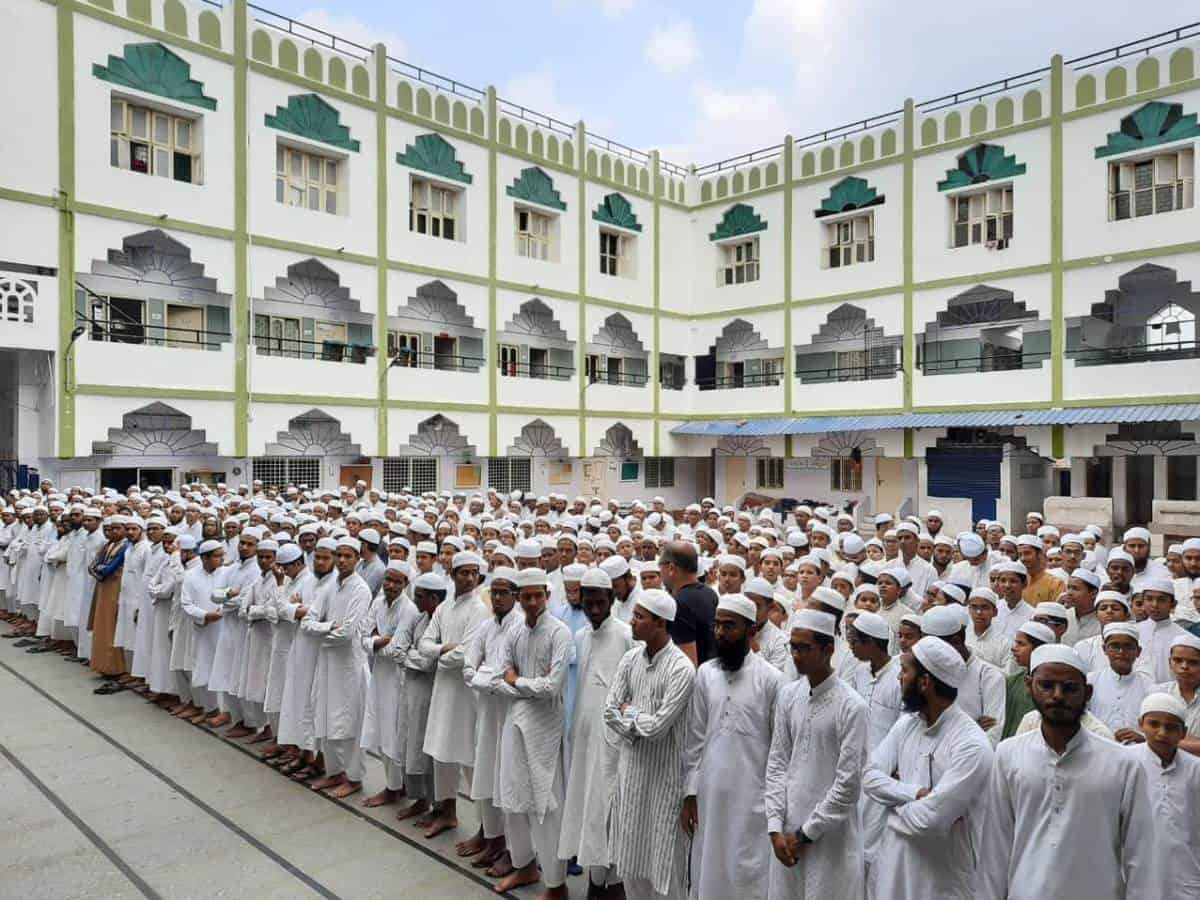
The Allahabad High Court’s recent order declaring the Uttar Pradesh Madarsa Act 2004 as ‘unconstitutional’ has several madarsa teachers and their students staring at an uncertain future. Many students fear loss of education and teachers are anxious about losing their jobs.
Citing ‘no secularism found in the education system’, the high court, on March 22, ordered the Yogi Adityanath government to start the process of ‘transferring’ and ‘accommodating’ madarsa students in government schools.
AIMIM chief Asaduddin Owaisi, on Sunday, March 24, expressed his disappointment over the order. In a post on X, he questioned the UP government’s plan of action. “@myogiadityanath will have to clearly state whether they will appeal this decision? His government has repeatedly targeted madrassas. The salaries of teachers imparting non-religious education in madrassas have been frozen for many years,” he said on X.
What is HC’s judgement?
The Allahabad High Court struck down the UP Madarsa Act, 2004, indicating the categorical violation of secularism and failure to provide “quality compulsory education up to the age of 14 years or Class 8, as required.”
A bench led by Justices Vivek Chaudhary and Subhash Vidyarthi stated a breach of “Articles 14, 21 and 21-A of the Indian Constitution and Section 22 of the University Grants Commission Act, 1956.”
The bench noted the Act was not imparting equal education when compared to other regular schools. “Quran and Islam are mandatory from Class 1 to 8, failing which, the student is not promoted. The education being imparted in madarsas is neither ‘quality’ nor ‘universal’ in nature,” the bench observed.
Owaisi debated that Articles 29 and 30 of the Constitution gives any scholar or an intellectual individual the right to run their own educational institutions. “In this context, it is a little difficult to understand why the court said that the Madrasa Act is against the Constitution,” he said on X.
The poor left in lurch
Chairman of the Uttar Pradesh Board of Madrasa Education Iftikhar Ahmed said that the state has 19.5 lakh recognised and seven lakh unrecognised madarsas.
Javed told The Wire that not just for Muslim families, the HC’s verdict will affect poor families who send their wards to madarsas due to the unavailability of government schools in their area.
“There are places that are located in interior and far-off places and without schools, where the poor people send their children to madrasas which provide them free education. Shutting them down will give rise to the illiteracy rate,” The Wire quoted Javed.
Madarsas rely on donations and zakat to sustain themselves.
Rise of unemployment
With the Allahabad High Court’s order, there is a growing concern over the loss of teachers’ jobs.
Faiyaz Ahmed Misbahi, a 36-year-old madarsa teacher from Balrampur told The Wire of his anxiety of losing his job.
A teacher for the last nine years, Misbahi pointed out that the high court did not mention anything on where teachers would go. “What about the teachers? They will have no work, no pay,” he was quoted by The Wire.
He also questioned the blurred future of Madarsa lands. “What will happen to the government land and the big building complexes of these madrasas?” he asked.
Misbahi said that many noted alumni have become IAS officers or professors in celebrated central universities such as Banaras Hindu University, Aligarh Muslim University and the Jamia Millia Islamia University. “There are numerous examples of people who studied in the madrasa stream who have gone on to crack civil services and become IAS officers. Others are getting degrees in law and clearing medical entrance tests,” he said.



